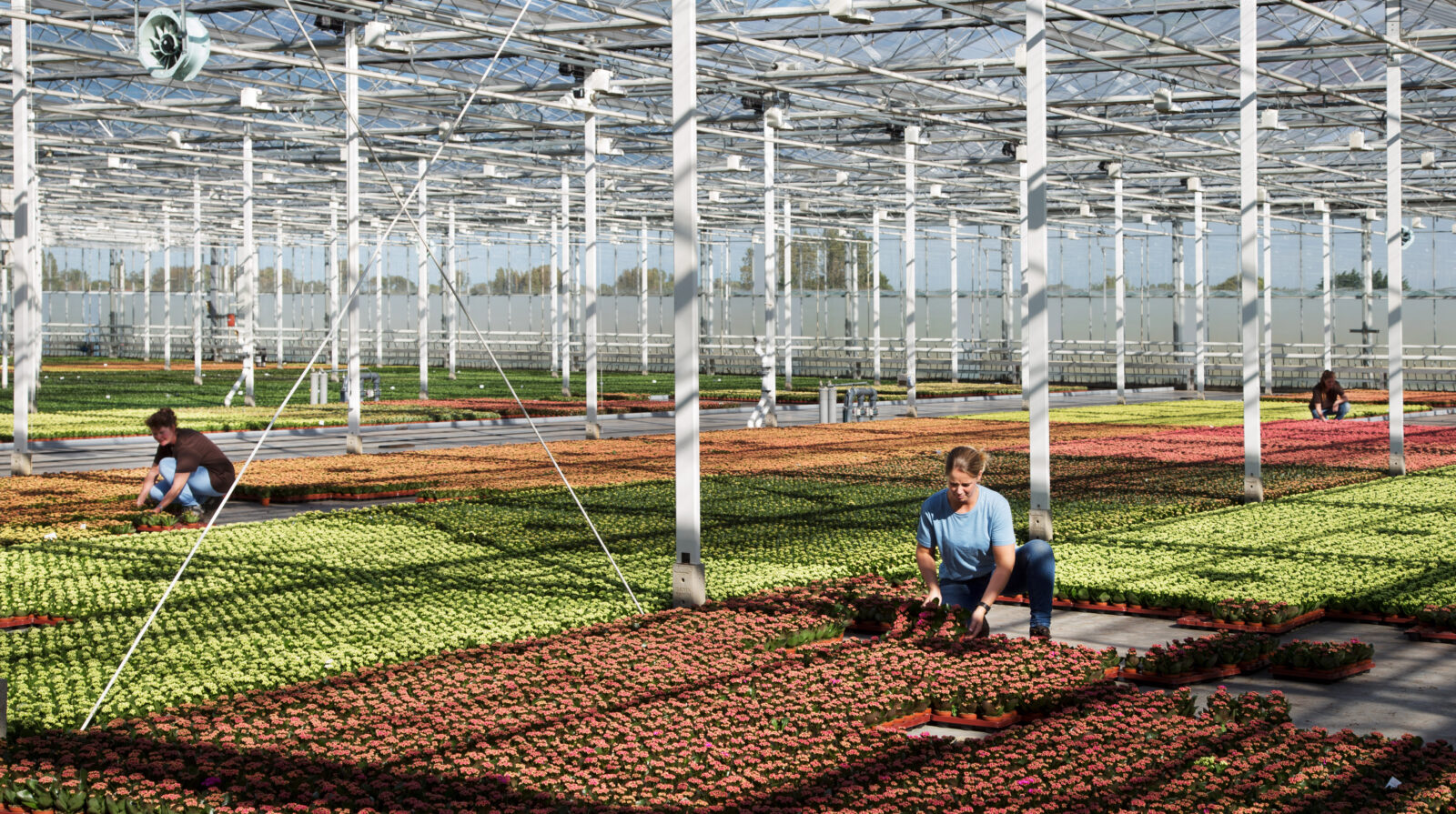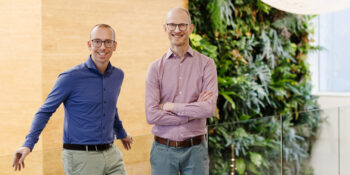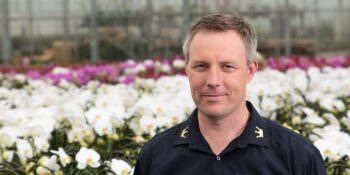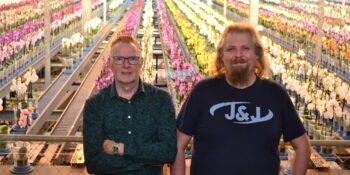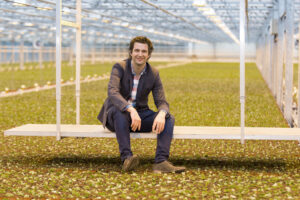
Rene van Dop, director at Vilosa.
The way Vilosa sees it, sustainability will become an inevitable standard. They don’t cling to traditional cultivation methods and are always trying out new ones. Two years ago, the Kalanchoe growers Rene van Dop, Fred van Luijk and Nick Groenewegen decided to merge their companies under the name Vilosa. Now they produce around 14 million plants sustainably. “Growing the plants sustainably is our top priority,” says Van Dop, CEO at Vilosa.
“About eleven years ago we started with MPS-ABC. You need to keep track of your consumption somehow, and ABC is a great tool for that. It feels like a kind of foundation on which you can build and develop your activities,” says Van Dop. The company has also obtained MPS-GAP, MPS-SQ and MPS-ProductProof certifications since then. In addition, the company has received certificates from MPS-ECAS, namely Groen Label Kas and GRASP, and it is PlanetProof certified. “Actually, I consider MPS-GAP and MPS-SQ as a kind of check-list. We already had the foundation, but with MPS-SQ you also ensure that all the job descriptions are correct.”
Investing in the future
The company has already held the MPS-A score for a long time, which means that its production is sustainable in the areas of crop protection agents, fertilisers, waste and energy. “I believe that sustainability is becoming the standard and we are now responding to that. We try to recycle as much as possible and we use more and more biological alternatives,” Van Dop says. “We don’t cling to specific cultivation methods but look for other possibilities.”
In the framework of ‘Het Nieuwe Telen’ (The New Cultivation: energy efficient cultivation with optimal production) Vilosa is testing the Air Mixer in one of the nurseries to control moisture management. The system brings dry air from outside into the greenhouse, which allows the screen to remain closed. This prevents light emissions and ensures better climate control. Van Dop: “This is a new form of cultivation that allows us to take a major step towards further sustainability. We’re hoping to be able to equip all the nurseries with the Air Mixer in the future.”
The best solution in terms of plastic, is to make the chain circular
Recycling
Plastic is a significant subject of discussion within the company. The social debate around plastic has erupted and consumers don’t see plastic as sustainable. According to Van Dop, this is not always justified. “I don’t think plastic is a bad product, as long as the recycling chain is a closed loop to the greatest extent possible. Our trays are made of 99% recycled plastic, as are the pots we use. The best solution in terms of plastic, is to make the chain circular. That would make it a great product and no raw materials are wasted.”
Sustainability is of paramount importance to the company, which is supported by the fact that two of the three nurseries are connected to geothermal wells. Van Dop: “Although that doesn’t make the production any less expensive for us, it does mean we use less gas. I think everyone will need to stop using gas in due course. At the same time, we’re winning in terms of sustainability and that’s becoming increasingly important. Moreover, I think we have to invest in a sustainable future now.”
